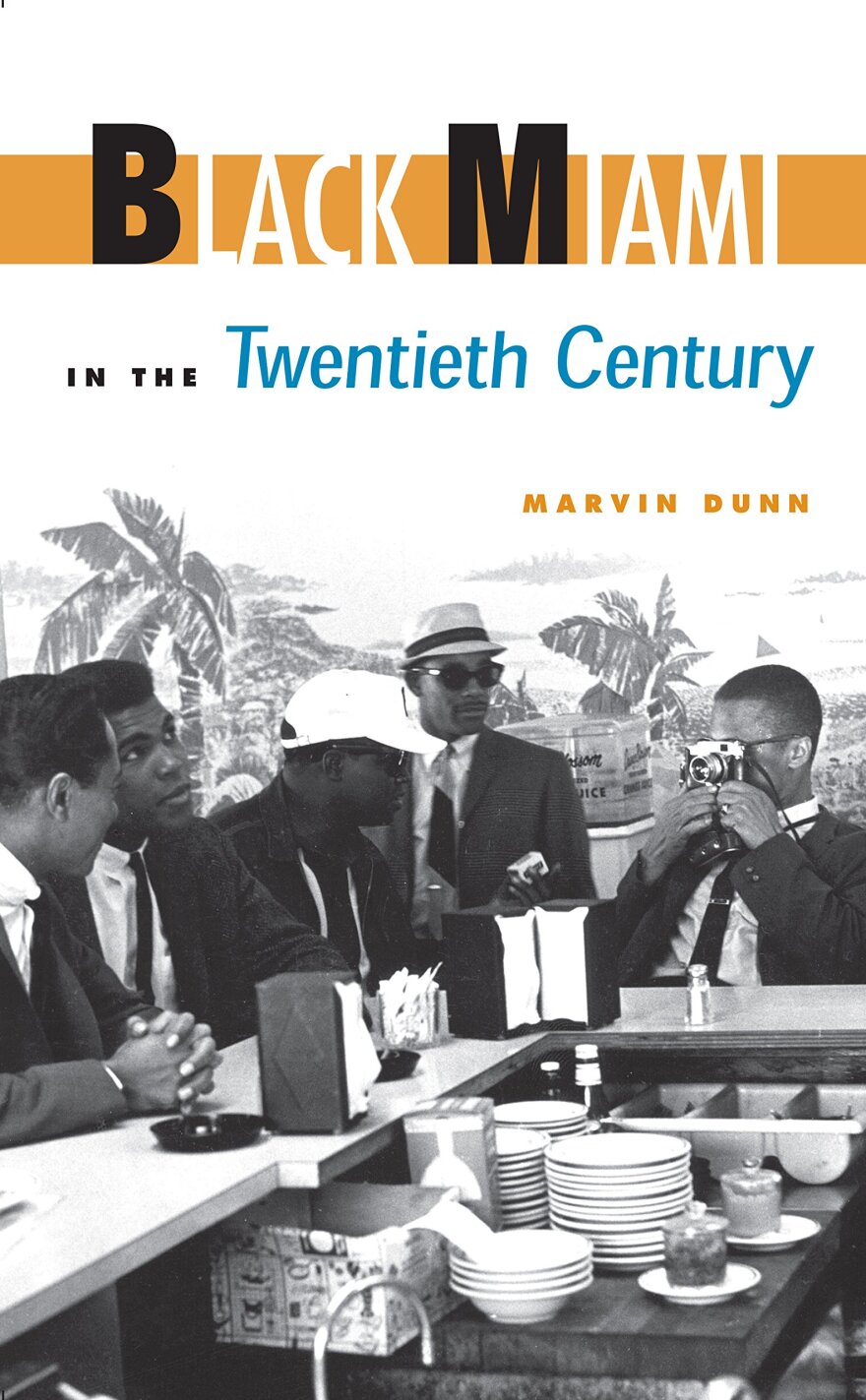When the city of Miami was established in 1896, there were 367 people who voted to make Miami a reality. Of those people, 162 of them were Black residents. And the first name on the charter of the city was that of Silas Austin, a Black man.
The history of this city and the region was largely shaped by Bahamians, Haitians, the Caribbean Diaspora, and African Americans.
WLRN is committed to providing the trusted news and local reporting you rely on. Please keep WLRN strong with your support today. Donate now. Thank you.
How much of that history are we teaching in our schools?
FIU professor emeritus, Dr. Marvin Dunn wrote the book “Black Miami in the 20th Century”. WLRN’s Luis Hernandez spoke with him and discussed his inspiration for the book and how he hopes more students can read it.
This conversation has been edited for length and clarity.
WLRN: To what extent did you talk about the history of Black Miami in your household growing up with your parents and your grandparents?
DUNN: No one discussed Black history in my life. When I entered college, my father was concerned that I was becoming associated with Martin Luther King Junior at Morehouse College in Atlanta and asked me not to do that. He was afraid for my safety. My father and my mother were almost killed one night when they were walking along the road. And he had to push my mother into a ditch and falling on top of her to protect her from being hit by a car driven by a white person. So he had a very bad taste in his mouth. Whenever anyone would mention some event about lynching or the Emmett Till event, which took place in 1951 when I was 11, if someone talked about that my father would say “Don't talk about that. I lived through all of that. Don't talk about it.” So it was not uncommon for people to say “We lived through that. We don't wanna hear about that.” Plus there was no material. If you wanted to talk about Black history, what would you look at? What would you read? There was nothing of substance.
I want to ask you about Black Caesar, the Black pirate you describe in the book. What do we know about who he was?
I started the book with him because I wanted children to read the book. I wanted them to be attracted to something that I knew children were excited by, and that was pirates. But there are no Black pirates shown to kids, just these Mediterranean looking individuals. So I want to attract their attention by beginning with something that was true and that was exciting. Piracy was a very attractive occupation for Blacks. It certainly was better than slavery. They were free. They were rewarded with loot that they managed to take and over time. Several Black men had ships that powered it along the southeastern coast of Florida, including right here in Miami. And we found evidence of that in Coconut Grove and other places when whites began settling southward.

There's a woman you in the book that gave you a lot of hope and inspiration. Tell us the story of M. Athalie Range.
The person in my Miami history whose story would make you smile is that of M. Athalie Range. The first Black woman to serve in the Miami City Commission. Mrs. Range, as we called her Momma Range, was a powerhouse in Miami. If you wanted to run for Congress, you had to go to Momma Range and talk to her. If you wanted to run for president, believe me, you had to go talk to Momma Range. And when tragedy hit the community, she was the one whose shoulders held us up and spoke for us. I miss her. She gave a lot of time in putting together this history. I wish that her voice and her power were still with us, but they're not. But I'll tell you, in this new age of civil rights, which I see emerging after the George Floyd event, I think there's reason for optimism. It seems as if for now, the nation is paying attention. And it seems to me that now there may be some substantive change that Momma Range would have hoped for. And that makes me smile.
Have you ever had a conversation with teachers or educators about why more of this is not in the curriculum?
I have had those discussions. But it is not up to me to push this book through the school system. Many schools in the system have a copy of this book that was purchased years ago when it came out. The system knows that the book exists. Some of the school board members have spoken to me about it. But there's been no move to incorporate this book into the school system. I wrote this book realizing that I had to use language that would be acceptable in schools. I could tell these stories and much more, believe me. I wanted the book to be acceptable in schools and so it was written that way. But I'm not going out and hawking this book and trying to push in the school system. People have it, they can use it. I wish they would. That was one of the reasons I wrote it. That's not happening, but I won't be the one that will make it happen.
Want to join the Sundial Book Club? Click here.


